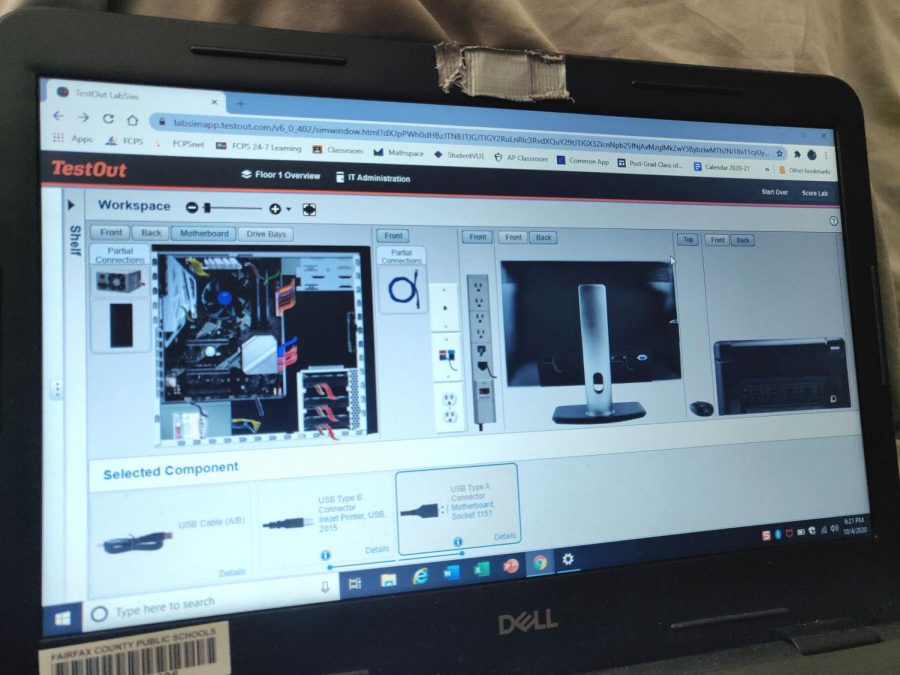Elective classes make major changes to adapt to the virtual setting
Photo used with permission of Saneela Refai.
Senior Saneela Refai works through a lab simulation on TestOut, where the task is to connect the given wires and start the computer.
October 20, 2020
As schools adapt to online learning, several elective classes have been forced to make major changes to their curriculum. One such impacted elective is computer systems technology, a hands-on academy class where students get practical experience with hardware.
“In level one, we had our own PC that we could take apart and put back together, and we learned that through real labs,” senior Saneela Refai said. “But now that we’re virtual, all of those things are canceled.”
Now the class labs are limited to online simulations and materials on TestOut, an educational program that gives training for IT certification. The lack of practical experience means that students are much more reliant on the information given online.
“I have to pay more attention to TestOut because I have no other source of information,” Refai said. “The class is still good, but I do like it better when we get to experiment. It’s a different experience when you get to explore with opening up hardware and putting it back together.”
Academy classes aren’t the only ones that are being heavily affected by the restrictions of online learning. Journalism courses, such as the school yearbook, The Odyssey, have also made significant adjustments to their class format.
“We start off with our entire class meeting and giving general updates,” junior Harini Sethu said. “Usually, Mrs. Downes gives us an update on yearbook sales and the Editors-in-Chiefs’ explain new deadlines. Then we split into breakout rooms with our teams and divide content and get more specific updates from the Editorial Leaders.”
Aside from the new inclusion of breakout rooms, online learning has also changed the types of positions offered in the class. Instead of having second-year members be team leaders, they are assistant editors.
“This makes it easier to divide up content, and the bigger teams make it easier to meet our deadlines on time,” Sethu said.
Since The Odyssey is a class that relies on interviews and student photography, it has become very difficult for staff members to get the content that they need.
“When we were in person, we could find people at school and have interviews done in just a few minutes,” Sethu said. “Now, we need to do everything through text and call which is a lot slower and more unreliable. We could also go to events and take pictures, but now we rely on the people we interview to provide us with good quality pictures.”
Many other electives, such as visual and performing arts classes, have also been affected by the switch to online. Other athletics-based courses such as physical education have also needed to adapt to the change. Though these electives have been limited by the lack of in-person learning, both teachers and students are finding ways to stay connected and make the most of the virtual year.
“One of the benefits is how well we managed to bond through a virtual environment which I didn’t think would happen,” Sethu said. “We do high/lows of the week every Friday in order to see and hear each other.”



